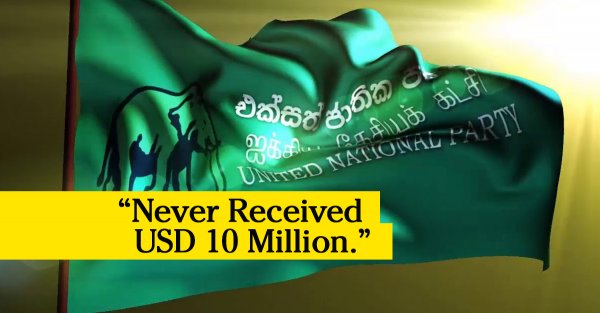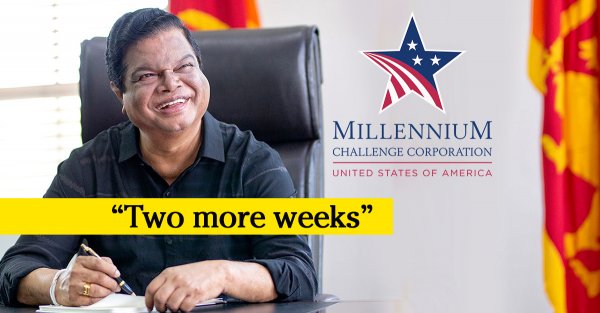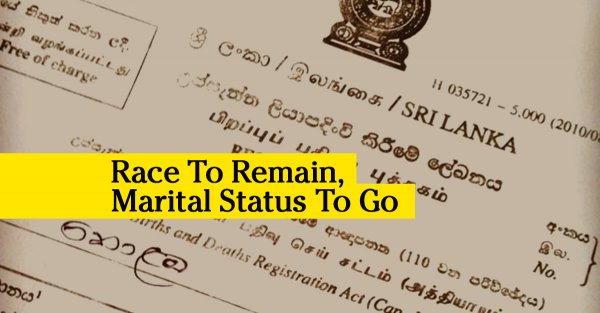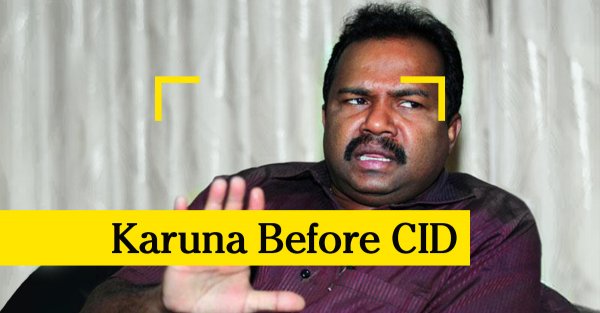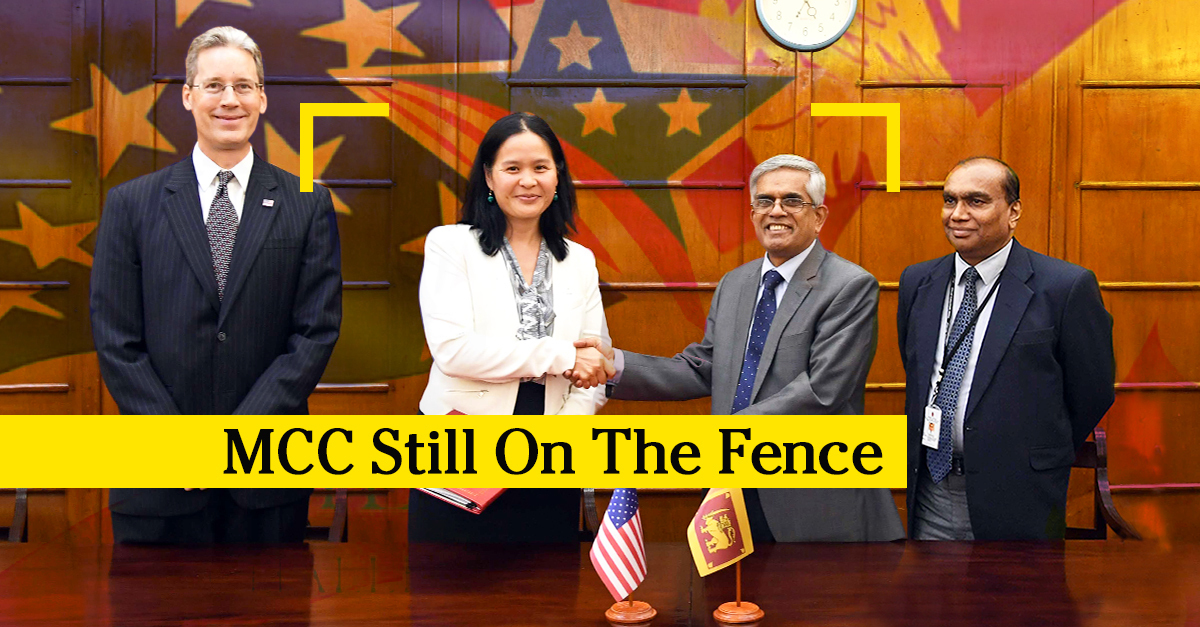
The Millenium Challenge Corporation (MCC) grant from the United States government to Sri Lanka continues to fuel debate as both nations remain locked in unceasing deliberation over the issue.
On Monday (23), the US Embassy in Sri Lanka said the Sri Lankan government was still reviewing the proposal to the MCC Compact Agreement — “We understand the Government of Sri Lanka is reviewing the USD 480 million grant,” it said.
The statement came on the heels of, and contradicted, a decision by the Cabinet of Ministers to call off the agreement.
Cabinet Spokesperson Minister Dr Ramesh Pathirana told the media just two days prior (21), Sri Lanka would not sign the proposed grant, as the four-member committee that had reviewed it felt it was not suitable for the country.
What Is The MCC?
The MCC, created by the US Congress in 2004, is an independent US foreign aid agency that provides grants to reduce poverty and generate growth in a country.
It selects countries through a ‘competitive’ process and prioritises the World Bank’s classification of low and low-middle income countries, based on per capita income.
Sri Lanka began negotiations with the MCC in 2004 under the Bandaranaike-Kumaratunge administration and was selected as eligible to develop a compact in 2016. The country’s project proposals for the compact were submitted for consideration in November 2017 under the government of Maithripala Sirisena. It was approved by the MCC Board on April 25, 2019.
The MCC agreement was approved by the Cabinet of Ministers on December 18, 2019 —right after the 2019 Presidential election—but the deliberations of the review committee, appointed on January 1, 2020 has become cause for a much-heated debate and consequential delay.
Citing the review committee’s comments in the interim report handed over to Prime Minister Mahinda Rajapaksa, the current administration has demurred, saying it would need to obtain public and parliamentary approvals before moving forward. Several Fundamental Rights petitions at the Supreme Court and protests against the MCC agreement have also fueled public perception and debate on the topic of the MCC.
What Will The MCC Fund?
According to the publically available draft of the agreement, the MCC grant will be applied to two areas in Sri Lanka in the form of a transport project and a land project.
The transport project—worth USD 350 million—will seek to increase the efficiency and capacity of urban and provincial transport infrastructure in the Western, Central, Sabaragamuwa and Uva provinces by upgrading physical roadway networks, modernising traffic systems and introducing policy and regulatory reforms.
“These investments will reduce severe traffic bottlenecks, create safer, more reliable public transportation and lower the transport costs required to connect people and goods with booming markets,” the US Embassy has said.
The land project—worth USD 67 million—is expected to increase the availability of spatial data and land rights information.
Focusing on the Central, North-Western, North-Central and Eastern Provinces, the project will help the government create an inventory of state lands, modernise methods of valuing lands, strengthen tenure security for smallholders, women and firms, and digitise deeds records so that they are less vulnerable to damage, theft and loss.
Through the projects, the agreement expects to benefit approximately 11 million individuals over a 20 year period.
MCC Criticised
There are two arguments posed against the initiation of the MCC agreement in Sri Lanka. The first claims that the MCC agreement will undermine the country’s sovereignty and national security.
The MCC review committee’s interim report said there were, ‘clauses and conditions that would negatively affect the national goals/objectives, sovereignty as well as national security, along with sections and provisions that would be unfavourable for the Sri Lankan Constitution and the legal framework of the country, included in the proposed composite agreement and agreement of the programme implementation, as well as in the draft cooperate statute of the proposed company.’
The second argument lleges the project will render land owned by the Sri Lanka government available for purchase to the American government.
Minister and Co-Cabinet Spokesperson Bandula Gunawardana previously said, “This agreement was drawn up by the UNP according to its whims, without taking the interests of the country into consideration. We warned about this during the elections, and I translated the entire agreement into Sinhala and published a book based on it, so that people could understand the dangers of signing such an agreement.”
Both claims have been denied by MCC Resident Country Director Jenner Edelman, who said, “First, the US and the MCC will not buy, own any land under this agreement. It is illegal under Sri Lankan law for foreigners including Americans to buy or own land here. Second, MCC compact has no connection with the US military.”

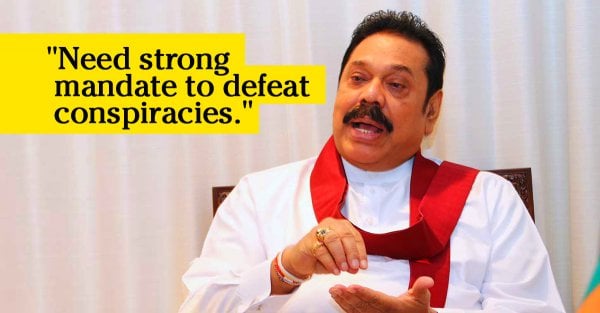
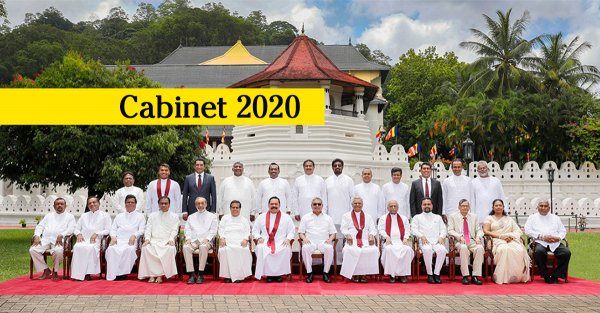
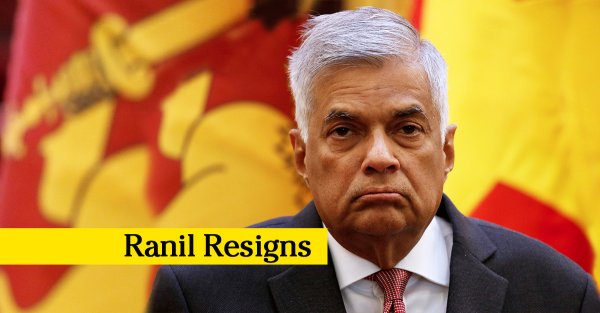
.jpg?w=600)
